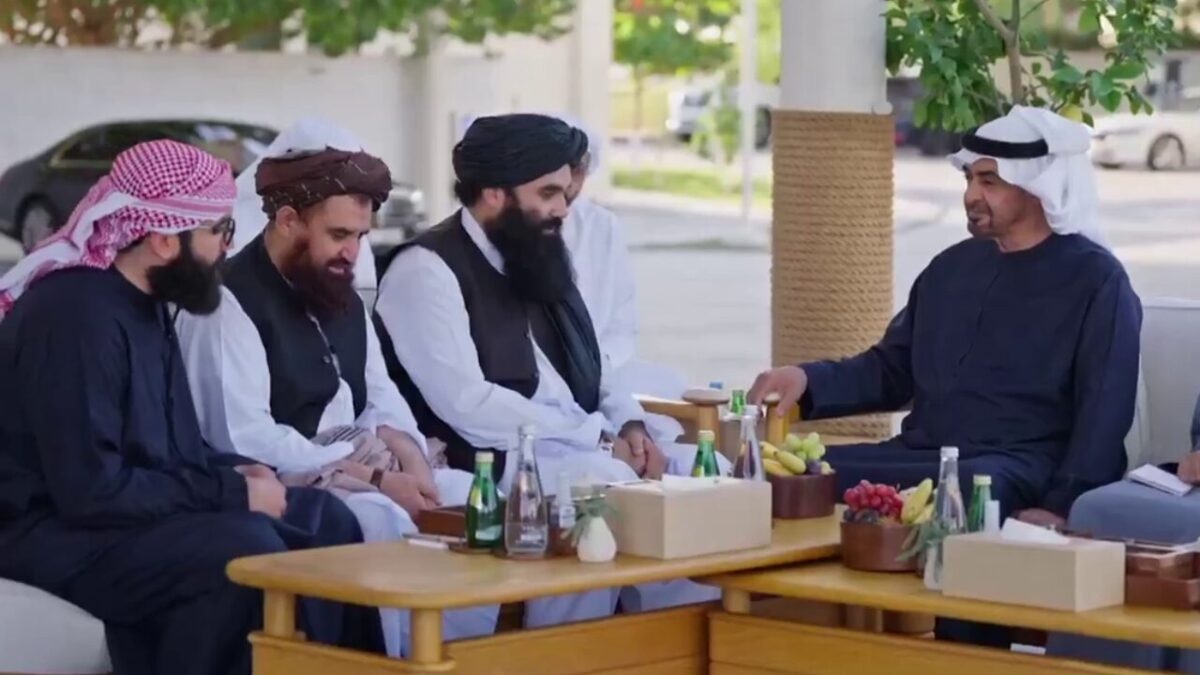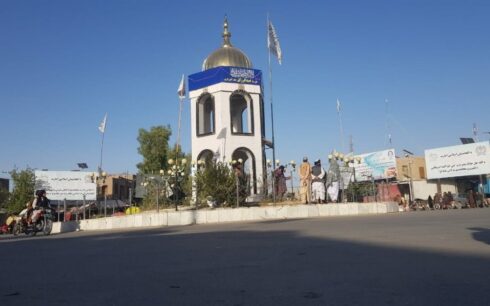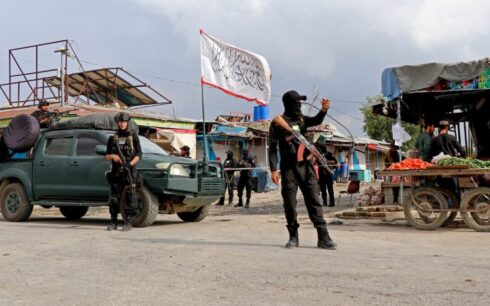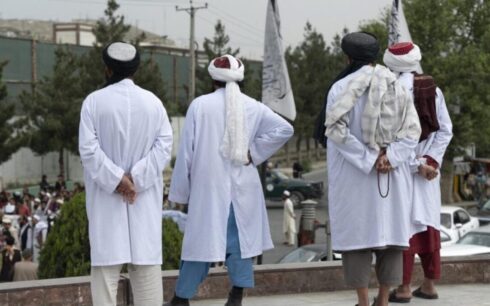KABUL — Sirajuddin Haqqani, the Taliban’s interior minister, has yet to return to the country 13 days after traveling to the United Arab Emirates, according to a source familiar with the matter. Another source suggested he may have traveled to Saudi Arabia for Umrah, further extending his absence.
His prolonged stay comes at a time of growing internal divisions within the Taliban’s leadership, which have been increasingly visible in recent weeks. Tensions escalated after Abbas Stanikzai, the Taliban’s deputy foreign minister, publicly criticized Supreme Leader Hibatullah Akhundzada, highlighting fractures within the group.
Haqqani’s visit to the UAE earlier this month was his second trip to the Gulf nation this year. The Taliban’s spokesperson publicized the visit on January 22, but little has been disclosed about its purpose or his delayed return.
Some analysts believe the trip was not solely about Afghanistan’s ties with the UAE, but rather about Haqqani’s own connections with the United States.
Jilani Zwak, an Afghan journalist, said the UAE plays a unique intermediary role in Taliban-U.S. relations.
“I don’t think this trip was about Afghanistan’s relations with the UAE,” Zwak said. “It was more about Afghanistan’s relations with the United States—and more specifically, the Haqqani network’s ties with Washington. The UAE has served as a mediator between the Taliban and the U.S.”
Internal power struggles in Kabul
While Haqqani remains abroad, the Taliban’s internal disputes appear to be intensifying in Kabul.
In addition to Stanikzai’s repeated criticisms of Akhundzada, sources say one of the key points of contention within the group revolves around the reassignment of Abdul Kabir—a senior Taliban leader—from his position as deputy prime minister for political affairs to minister of refugees.
Official Taliban accounts have shared photos of Kabir’s meetings on Sunday, showing him conducting affairs from the Sapidar Palace, which had served as the political office of the deputy prime minister. Despite his appointment as minister of refugees on January 10, no images have surfaced showing him at the ministry itself, raising questions about whether he has fully assumed his new role.
The future of the deputy prime minister for political affairs post also remains unclear. The last public images of Kabir’s office staff do not indicate whether the position has been officially filled or left vacant.
Mounting international pressure on Taliban
Beyond internal struggles, the Taliban are also facing renewed international pressure, particularly following Donald J. Trump’s return to the White House.
In addition to Trump’s administration intensifying pressure on the Taliban, the International Criminal Court (ICC) has also received a request from a senior prosecutor seeking the arrest of Akhundzada and the Taliban’s chief justice—a development that could further isolate the group on the global stage.





